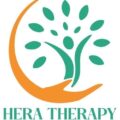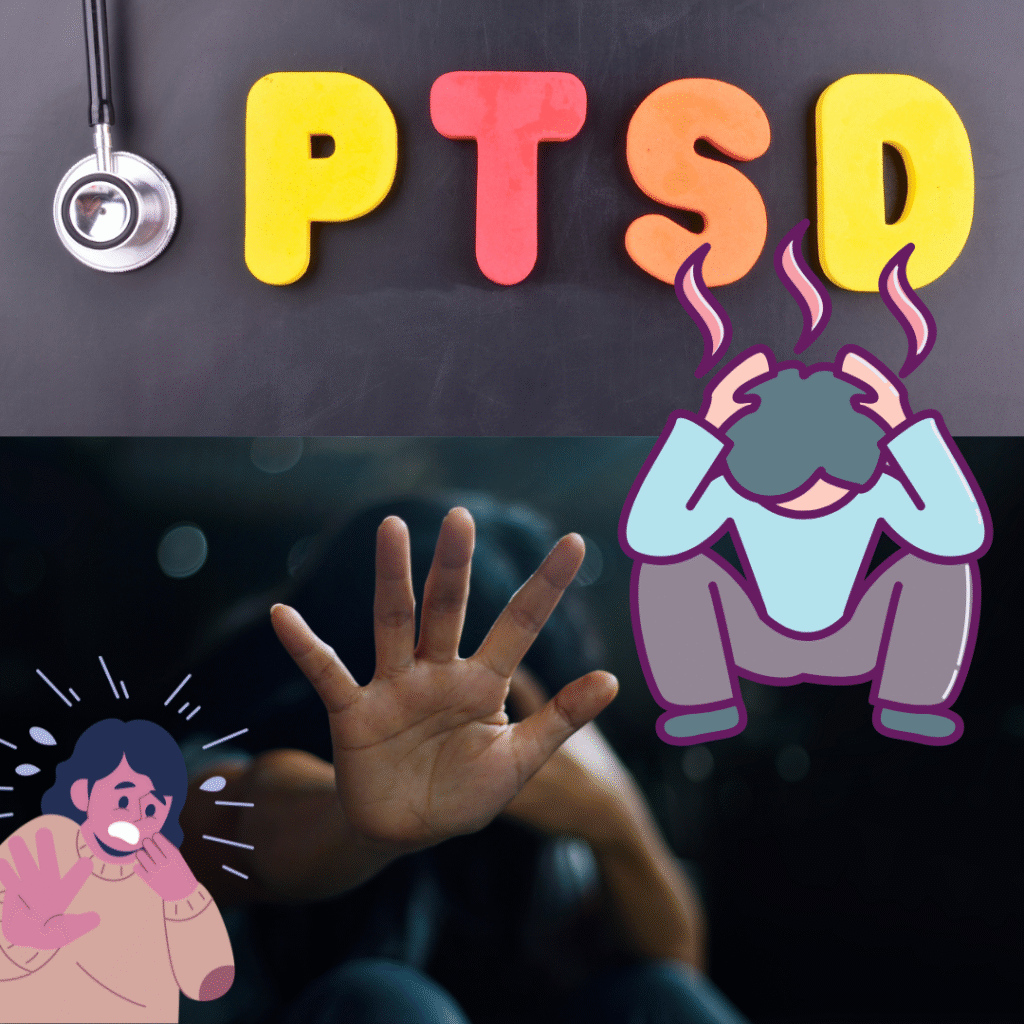If you’ve been through a distressing experience and you’re still feeling the emotional effects long after it ended, you’re not alone. Many people in Kenya silently carry the weight of trauma from road accidents, loss, violence, abuse, or even ongoing stress at home or work.
The signs of PTSD (Post Traumatic Stress Disorder) are often misunderstood, ignored, or mislabeled as just being “weak” or “overreacting.” But trauma is real. Its impact is real. And help is available.
One of the most empowering first steps is self-awareness. That’s where the PTSD self-assessment tool in Kenya comes in a simple, private, and accessible way to check in with yourself and understand what you may be going through.
Also Read: How to Use Alcohol Assessment Tools in Kenya
What Is PTSD and Why Does It Matter?
Post Traumatic Stress Disorder (PTSD) is a mental health condition that can develop after experiencing or witnessing a traumatic event. It can affect anyone, men, women, youth, children, or older adults and it doesn’t always show up right away.
Common signs of PTSD include:
- Repeated flashbacks or nightmares
- Feeling constantly on edge or anxious
- Avoiding people, places, or things that remind you of the trauma
- Feeling numb, disconnected, or hopeless
- Sudden mood swings, anger, or irritability
- Trouble sleeping or concentrating
Many people in Kenya live with these symptoms for years without knowing what they’re experiencing has a name and more importantly, that support exists.
What Is a PTSD Self-Assessment Tool?
A PTSD self-assessment tool is a questionnaire designed to help you reflect on your symptoms and see if they may be linked to trauma. It’s not a diagnosis but it can guide you toward understanding whether what you’re feeling might be PTSD.
These tools are based on global clinical guidelines like the DSM-5 and ICD-11, adapted for different populations including adults, youth, and even frontline workers.
When used properly, a PTSD screening tool in Kenya can:
- Help you name your experience
- Provide clarity and relief (“I’m not just imagining this”)
- Encourage you to seek therapy or talk to someone
- Guide mental health professionals during follow-up care
How to Use PTSD Tool in Kenya
Taking a PTSD assessment for adults or youth in Kenya is simple, confidential, and accessible even from your phone. Here’s how it works:
1. Find a Trusted Self-Assessment Tool
Look for tools hosted by licensed therapists, mental health platforms, or recognized organizations. At Hera Therapy, we offer a free, private PTSD self-assessment tool created with trauma specialists. You can also find options through NGOs and mental health support groups across Kenya.
2. Create a Safe Space
Choose a quiet moment when you can reflect without pressure. PTSD tools usually ask you to rate how often you’ve experienced certain feelings or symptoms over the past few weeks. No one is watching. This moment is about you.
3. Answer Honestly
Some of the questions may bring up painful memories. That’s okay. Answering truthfully helps you see your experience clearly. If you feel overwhelmed, take a break or speak to someone you trust.
Example questions may include:
- “Do you feel constantly alert or on edge?”
- “Do you have distressing dreams or flashbacks?”
- “Do you avoid reminders of a painful experience?”
4. Review the Results
After completing the assessment, you’ll receive a score or a summary. This might show if your symptoms align with signs of PTSD, or if further support may be helpful. Again this is not a medical diagnosis, but it’s a strong first step toward understanding and healing.
5. Take the Next Step
If your results suggest trauma-related symptoms, don’t panic. Many people experience PTSD at some point, and healing is possible. You can speak with a therapist, join a support group, or continue with guided self-care.
At Hera Therapy, we offer follow-up consultations, one-on-one trauma-informed therapy, and group sessions to help you process your experience in a safe and supportive environment.
Who Should Use a PTSD Self-Assessment Tool?
Anyone who has lived through a deeply distressing, frightening, or emotionally overwhelming experience and is still feeling the emotional impact days, months, or even years later can benefit from taking a PTSD self-assessment tool.
PTSD doesn’t only affect people in war zones or extreme situations. Trauma comes in many forms, and it affects everyone differently. In Kenya, many people quietly carry unspoken emotional wounds, sometimes not even realizing their symptoms are trauma-related.
Here are some of the people who may benefit from using the tool:
1. Survivors of Violence, Assault, or Abuse
If you’ve experienced any form of physical or sexual violence, emotional abuse, or domestic violence recently or in the past it’s common to feel unsafe, hyper-alert, or emotionally numb. PTSD self-assessment can help you understand the emotional toll of what you went through and guide you toward support.
2. People Who Have Lost Loved Ones
Grief can be complicated and sometimes traumatic especially after sudden loss, death due to violence or accidents, or losing someone during times of crisis. If you’re feeling stuck in your grief, emotionally disconnected, or unable to move forward, a self-assessment may help clarify whether PTSD is part of what you’re experiencing.
3. Road Accident Victims
Kenya sees many road traffic accidents every year. Even when physical injuries heal, emotional scars often remain. Flashbacks, fear of travel, sleep problems, and anxiety are all signs that trauma may still be affecting you. A PTSD screening tool offers a safe, non-judgmental way to check in with yourself after such events.
4. Frontline Workers and First Responders
Healthcare workers, security personnel, humanitarian workers, and others on the frontlines often witness trauma daily. Over time, this exposure can build up and lead to symptoms like burnout, emotional detachment, panic attacks, or even depression. Regular self-assessments can help identify early warning signs and prevent deeper emotional harm.
5. Individuals Experiencing Emotional Numbness, Burnout, or Unexplained Anxiety
Sometimes, trauma doesn’t come from a single major event but from chronic stress, emotional neglect, or ongoing life difficulties. If you often feel numb, disconnected, irritable, anxious for no clear reason, or mentally exhausted, your nervous system might still be responding to unresolved emotional wounds. The PTSD self-assessment tool can be an eye-opener helping you recognize patterns you’ve been living with for too long.
6. Anyone Who Feels “Stuck” Emotionally
You may not have the words to describe what you’re feeling. You may just know something’s not right. That in itself is reason enough. The PTSD self-assessment tool in Kenya is not about labeling it’s about giving you language, insight, and direction for what you’re going through.
Where to Access PTSD Screening Tools in Kenya
You can now access PTSD screening tools in Kenya through:
- Hera Therapy Kenya – Online and in-person trauma self-assessments
- Mental 360 – Youth-led digital mental health resources
- Government hospitals and mental health units – Some offer PTSD assessments as part of psychiatric evaluations
- Online platforms – Look for tools supported by mental health professionals, not random quizzes
What Happens After the Assessment?
After taking a Post Traumatic Stress Disorder test in Kenya, you have options.
You can:
- Book a follow-up therapy session with a trauma-informed therapist
- Join a support group to connect with others going through similar experiences
- Begin a self-care plan that includes journaling, meditation, and setting boundaries
- Learn more about PTSD and trauma recovery
How Hera Therapy Can Help
At Hera Therapy, we’re here to support your healing journey with no shame, no stigma, and no pressure.
We provide:
- One-on-one trauma therapy with experienced, licensed professionals
- Group therapy sessions for shared healing in safe spaces
- Online therapy in Kenya accessible from wherever you are
- Affordable therapy in Nairobi, with flexible pricing and support for low-income clients
- A welcoming environment for everyone, including women, men, youth, and marginalized communities
Our PTSD self-assessment tool is designed for people in Kenya, by professionals who understand the local context and the emotional weight many carry. We meet you where you are and walk with you toward healing.
Healing Starts with Understanding
Taking a mental health self-assessment in Kenya is not a sign of weakness, it’s a powerful act of courage. It means you’re willing to understand yourself better, listen to what your body and mind are saying, and take the first step toward healing. And that step doesn’t have to be perfect, it just has to be yours.
At Hera Therapy, we walk with you through that step. We offer trauma-informed care, PTSD screenings, personalized therapy sessions, and group support that meets you where you are emotionally, physically, and financially. Our mission is to make mental health care in Kenya accessible, inclusive, and stigma-free, especially for those who have been left out or left behind.
Take your first step today, explore the PTSD self-assessment tool or book a session with Hera Therapy.


Thank you for your sharing. I am worried that I lack creative ideas. It is your article that makes me full of hope. Thank you. But, I have a question, can you help me? https://www.binance.info/ru-UA/register?ref=JVDCDCK4
Thanks for sharing. I read many of your blog posts, cool, your blog is very good.
Your article helped me a lot, is there any more related content? Thanks! https://accounts.binance.com/sv/register-person?ref=GQ1JXNRE